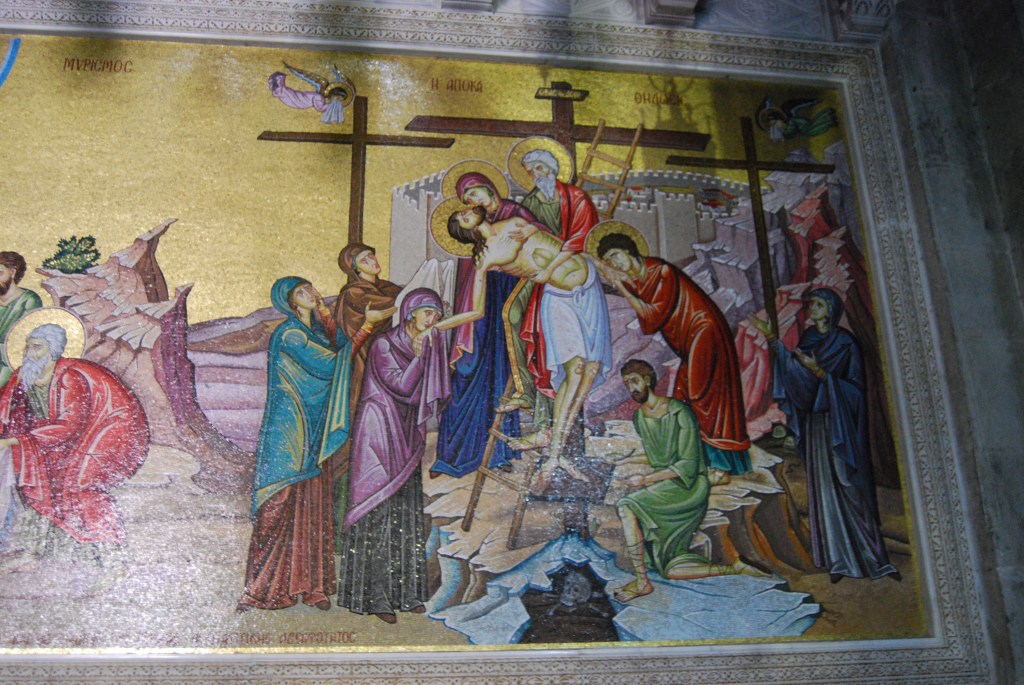
From my recent reading on Quantum Physics, I am learning about the unique properties of light and its impact upon time and our existence. Not surprisingly, light is also significant within Scripture. In the first words of Genesis, the first book of the Old Testament, we read God saying: “’Let there be light’ and there was light. And God saw that it was good. And God separated the light from the darkness. God called the light Day, and the darkness he called Night. And there was evening and there was morning, the first day.” (Genesis 1:3-5 ESV) The first thing that God created was light, not sources of light, which he created later on the fourth day; he created light, which also is related to time, because light defined a day.
In the New Testament, we gather more information about light. According to John, light has also become a person. That light is identified as being the Word, who was with God and who was God in the beginning. Through this person all things came into being; he is the source of life and that life was the light of all men, which shines in the darkness. This being whom John calls the Word is life and light became a person known as Jesus. (John 1:1-18) Jesus declared himself to be the light of the world, promising that whoever follows him will not walk in darkness, but has the light of life.
In the early 20th century as physicists were making new and unprecedented discoveries, Albert Einstein wrote about relativity and demonstrated that time is not constant, but is rather related to the speed an objecttt is traveling. It is also related to the observer. Einstein explained that the faster an object travels the slower time passes. On earth we do not travel fast enough to notice, although Einstein did give an illustration. In the case of a person standing still and bouncing a ball up and down, the ball travels a path of straight down and straight back up. However, if a person were to observe another person on a train passing by who is also bouncing a ball up and down, he would see that the ball does not travel straight up and down, but takes a “V” shaped path down and up, because while the person bouncing the ball is standing still the train is moving forward so that the ball also is moving forward on its path down and back up. In other words, the ball on the train is actually traveling further than the ball that is bounced standing still in the same amount of time. Einstein went on to explain that the closer an object travels to the speed of light the slower time passes. Einstein’s discoveries demonstrated a connection between light and time, while light has a constant speed, time is relative to the speed at which an object travels. Theoretically time stops at the speed of light or we might say is timeless. In other words, we might say that light is the lord of time. Jesus being the light of the world, is Lord over all and existing in a dimension outside of time.
Also discovered during that same time period is that light sometimes functions as a particle and at other times functions as a wave so that it is difficult to define what exactly it is. Curiously, Jesus is also hard to define. He is both God and man. Theologians struggled to explain him in the early centuries. The Council of Nicea affirmed that he was God, not a special created being as the Gnostics and later Arius taught. However, that did not end the debate about Jesus or answer the question of how one person could possess two natures, divine and human. Really that question has never been answered. One hundred years after Nicea at The Council of Chalcedon (451 AD) which defined Christ’s nature by what it is not. Jesus Christ’s dual nature was affirmed to be both fully human and fully divine existing in one person without confusion, change, division or separation. Curiously the nature of Jesus and the nature of light are strangely similar both having two components whose interaction are not fully understood or explained.
When we speak of Jesus as the light of the world, we often think of him in terms of illuminating humanity. While this is true it is also possible that the discovery of physicists and the emergence of Quantum Physics are also instructive on who Jesus is as well. Jesus as light of the world not only illuminates humanity, he is also Lord over time and exists outside of time. The discoveries regarding light made by 20th century physicists illustrate the truth of Scripture and also help understand what Paul wrote to the Colossians when he declared that Jesus sustains all of creation. Paul wrote about Jesus: “And he is before all things, and in him all things hold together”. (Colossians 1:17). Over the last several hundred years and particularly the last hundred the view has been taught that science and theology oppose one another, that faith in God and in Jesus cannot be reconciled with science. However the discoveries of the last 100 years indicate that science and theology have a lot in common if we just have the eyes to see and the ears to hear.








